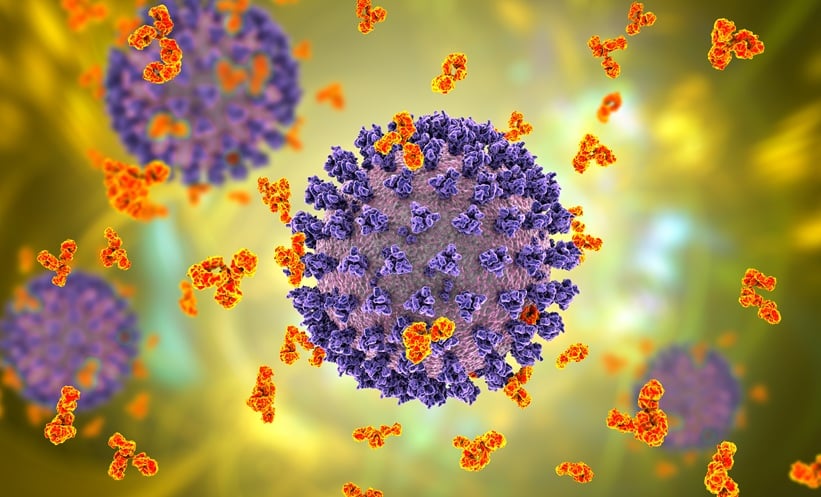NEW research suggests that classifying people by their immune response patterns could help identify who benefits most from COVID-19 booster vaccines, offering a potential framework for more efficient vaccine allocation in the post-pandemic era.
A team in Fukushima, Japan, followed 2,526 individuals between April 2021–November 2022, collecting longitudinal data on antibody levels after two primary doses and one mRNA booster. Using mathematical modelling and machine learning, researchers sorted participants into three groups: those with durable immunity, those with limited responses (the vulnerable), and those who initially developed strong immunity but experienced rapid decline (rapid-decliners). The study also examined antibody subtypes, including IgG and IgA, and SARS-CoV-2–specific T cell responses, to explore how these immune features influenced infection risk after vaccination.
Roughly half of the cohort remained in the same immune category even after receiving a booster. Importantly, the rapid-decliner group was significantly more likely to experience earlier breakthrough SARS-CoV-2 infection compared with the other groups. Further analyses revealed that individuals who became infected after booster vaccination had lower spike protein-specific IgA levels in the early post-vaccination period, suggesting a potential biomarker of vulnerability. These findings indicate that measuring immune dynamics, not just age or comorbidities, could provide a more nuanced picture of who remains at higher risk of infection despite vaccination.
The study offers an evidence base for stratifying booster distribution in future pandemics or as SARS-CoV-2 continues to circulate. Tailoring vaccine strategies to immune response patterns could strengthen population-level protection while avoiding unnecessary doses for those with durable immunity.
Reference
Park H et al. Longitudinal antibody titers measured after COVID-19 mRNA vaccination can identify individuals at risk for subsequent infection. Sci Transl Med. 2025;17(816):eadv4214.








